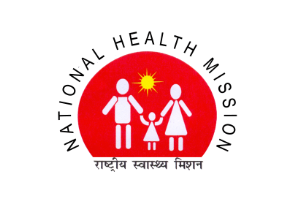- Skip to main content
- Skip to navigation
- Screen Reader Access
- Text Size
- Select Theme Default Theme Yellow Theme Pink Theme Blue Theme
- हिंदी में

The National Health Mission (NHM) envisages achievement of universal access to equitable, affordable & quality health care services that are accountable and responsive to people's needs.

Result for Walk in Interview of Medical Officers and Specialists held on 07-02-2025
Corrigendum for order dated 12-02-2024 for recruitment of Specialists on You Quote We pay Model
"Order for the candidates selected in the interview (You Quote We Pay Model) held on 01-02-2025"
Vaccancies of MBBS Medical Officers under NHM Uttarakhand-05/02/2025
MMU Activities in Uttarakhand with cooperation with The HANS Foundation
National Tuberculosis Elimination Programme
Background Information
TB is one of the most ancient diseases. It has been referred to in the Vedas and Ayurvedic Samhitas. The TB burden in India is staggering. Tuberculosis (TB) is a contagious disease caused by Mycobacterium tuberculosis. Left untreated, each person with infectious pulmonary TB will infect an average of between 10 and 15 people every year.
Tuberculosis generally affects the lungs, but can also affect other parts of the body. Most infections do not have symptoms, in which case it is known as latent tuberculosis. About 10% of latent infections progress to active disease which, if left untreated, kills about half of those infected. The classic symptoms of active TB are a chronic cough with blood-containing sputum, fever, night sweats, and weight loss.
Tuberculosis is spread through the air when people who have active TB in their lungs cough, spit, speak, or sneeze. People with latent TB do not spread the disease. Active infection occurs more often in people with HIV/AIDS and in those who smoke. Diagnosis of active TB is based on chest X-rays, as well as microscopic examination and culture of body fluids.
Prevention of TB involves screening those at high risk, early detection and treatment of cases, and vaccination with the bacillus Calmette-Guérin (BCG) vaccine. Those at high risk include household, workplace, and social contacts of people with active TB. Treatment requires the use of multiple antibiotics over a long period of time. Antibiotic resistance is a growing problem with increasing rates of multiple drug-resistant tuberculosis (MDR-TB) and extensively drug-resistant tuberculosis (XDR-TB).
Situation of TB Uttarakhand
In Uttarakhand the estimated total TB Cases are 237/Lac per year in 2022 including both public and private sector.
The National Tuberculosis Elimination Programme is based on the daily DOTS (Directly Observed Treatment with short course chemotherapy) strategy. In Uttarakhand Program has introduced daily regimen for treatment of drug sensitive TB in the year 2017, October month. This is a major shift in the TB treatment policy being followed by the Central TB Division. WHO revised its TB management guidelines in 2010, recommending that the daily drug regimen be adopted under NTEP.
Under the new daily drug regimen, TB patients will be given fixed drug combinations (FDCs) — three or four drugs in specific dosages in a single pill — on a daily basis. The drugs will be administered according to the weight of the patient.